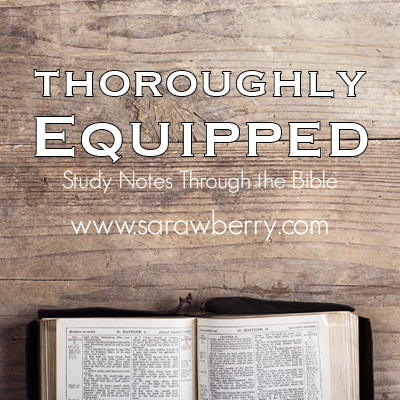Today’s reading includes Deuteronomy 7:1-8:20, Luke 7:36-8:3, Psalm 69:1-18, Proverbs 12:1.
Today, we see more instructions, more pep talks for the people before they enter the Promise land.
When the Lord your God brings you into the land you are entering to possess and drives out before you many nations—the Hittites, Girgashites, Amorites,Canaanites, Perizzites, Hivites and Jebusites, seven nations larger and stronger than you—
Deuteronomy 7:1
Remember, 7 is the number of completion and perfection. God is putting before them a mighty test and a difficult trial. These 7 nations will provide the opportunity for the people of God to completely trust the Lord. The nations will be bigger and stronger than God’s people, but He is on their side. And He is strongest of all. They will have to trust Him for their very survival, as well as their victory. They are to remain who they were meant to be and not fall into the trap of the ungodly habits of those around them. They are smaller and weaker, but God will make them strong. They are given a series of promises that can apply to our own weak, God-follower hearts.
18 But do not be afraid of them; remember well what the Lord your God did to Pharaoh and to all Egypt. 19 You saw with your own eyes the great trials, the signs and wonders, the mighty hand and outstretched arm, with which the Lord your God brought you out. The Lord your God will do the same to all the peoples you now fear.
Deuteronomy 7:18-19
They have good reason to be of good courage. The mighty One, the Creator of all things is on their side.
21 Do not be terrified by them, for the Lord your God, who is among you, is a great and awesome God.
In the midst of this great courage-building speech, there is also a warning sandwiched in the middle.
22 The Lord your God will drive out those nations before you, little by little. You will not be allowed to eliminate them all at once, or the wild animals will multiply around you.
Though God is capable of a swift and great victory, an immediate healing, or a miraculous upset, He usually works little by little. Our enemies will fall, our deliverance will come, but it may take a while. But even in the waiting there is purpose and protection. We can’t see how one event effects another. But He can. We don’t understand God’s perfect timing, but He has one. And in the waiting, we must trust Him.
This passage continually provides promise and warning. It speaks of promises for victory and success and blessings and provision which He will provide for His people. And it speaks of warnings to never take our eyes off the Provider of these things, lest we find ourselves slaves to pride, forgetfulness, and punishment.
10 When you have eaten and are satisfied, praise the Lord your God for the good land he has given you. 11 Be careful that you do not forget the Lord your God, failing to observe his commands, his laws and his decrees that I am giving you this day. 12 Otherwise, when you eat and are satisfied, when you build fine houses and settle down, 13 and when your herds and flocks grow large and your silver and gold increase and all you have is multiplied, 14 then your heart will become proud and you will forget the Lord your God, who brought you out of Egypt, out of the land of slavery. 15 He led you through the vast and dreadful wilderness, that thirsty and waterless land, with its venomous snakes and scorpions. He brought you water out of hard rock. 16 He gave you manna to eat in the wilderness, something your ancestors had never known, to humble and test you so that in the end it might go well with you. 17 You may say to yourself, “My power and the strength of my hands have produced this wealth for me.” 18 But remember the Lord your God, for it is he who gives you the ability to produce wealth, and so confirms his covenant, which he swore to your ancestors, as it is today.
19 If you ever forget the Lord your God and follow other gods and worship and bow down to them, I testify against you today that you will surely be destroyed. 20 Like the nations the Lord destroyed before you, so you will be destroyed for not obeying the Lord your God.
Deuteronomy 8:10-20
We must not forget what He has done for us and what He has promised us. We must not forget Who He is. He is worthy of praise for Who He is, not just for what good things He has done.


